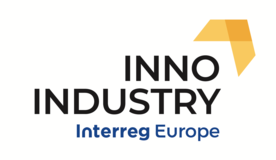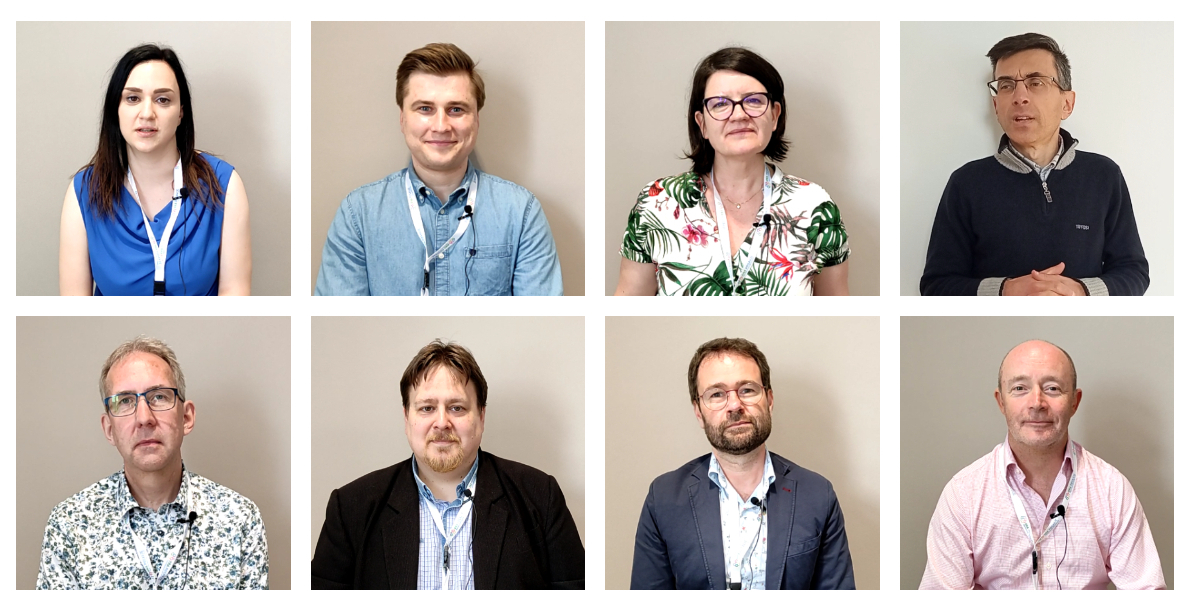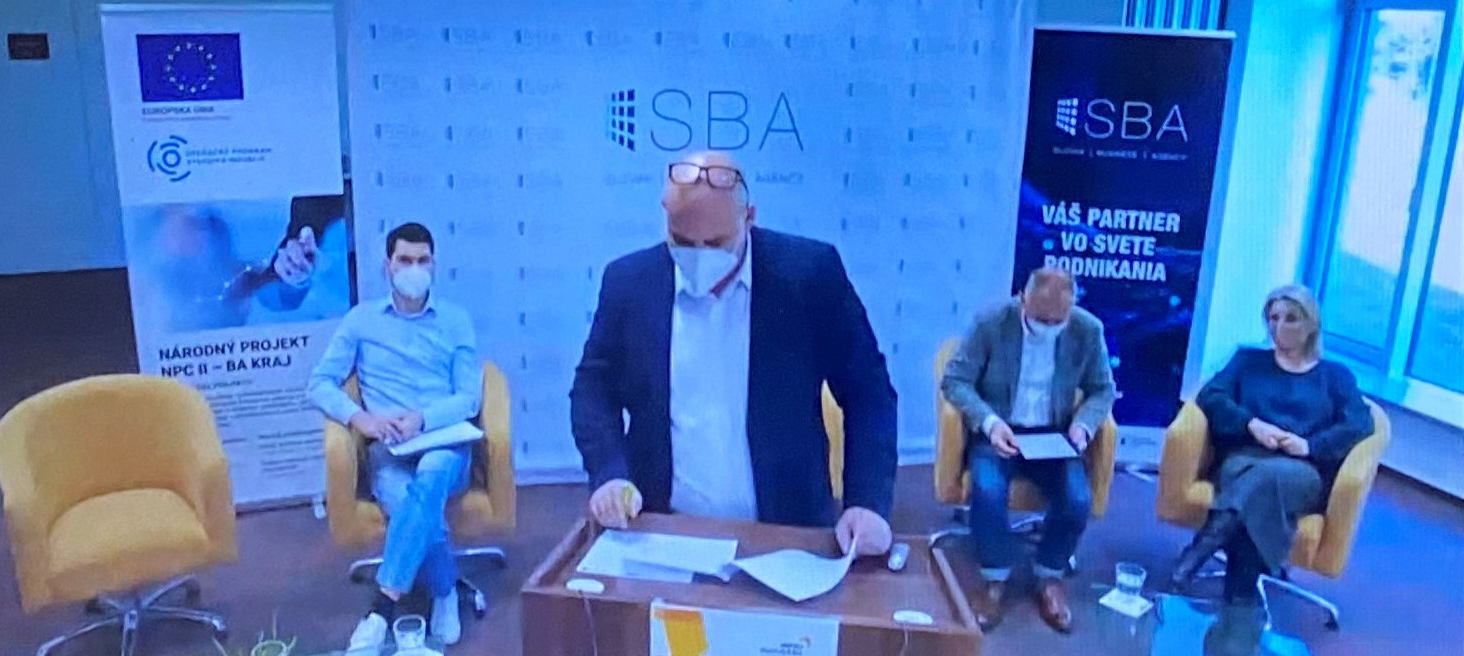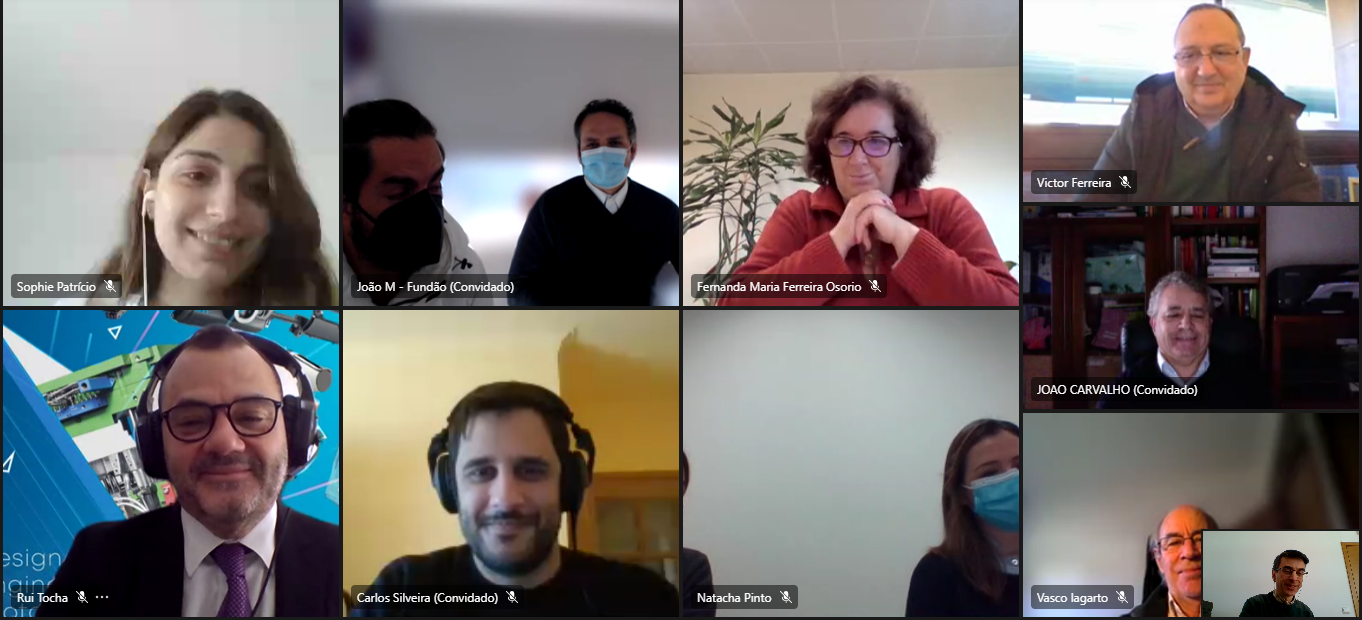On November 16th and 17th, the consortium of the INNO Industry project traveled to Fundaõ to carry out the study visit in Portugal that was planned as part of the exchange of experiences and best practices in the field of Industry 4.0.
Partners were able to bring along half a dozen stakeholders who have been actively involved in the learning activities of the project, which will ultimately help to improve their professional competences and skills gained in the topics addressed by INNO Industry: industry 4.0 and cluster policies.
In addition, the INNO Industry steering committee met to plan all the activities that will bring phase 1 of the project to an end on January 31, 2022. Due to the increasing number of COVID cases in Europe, some of the partners could not travel to Fundaõ, so a hybrid meeting was organized.
During the first day of the meeting, Tuesday November 16th, the partners had the opportunity to take a guided tour of the Business and Shared Services Centre of Fundaõ, which was one of the best practices identified by the Portuguese partner (CIEBI, the Business Innovation Center of Beira Interior) at the beginning of the project.
The Business and Shared Services Centre – Centro de Negócios e Serviços Partilhados (CNSP) in Portuguese – was developed as part of the response to the exodus of young people from Fundaõ due to the lack of job prospects and high unemployment. The centre adapted the economy to a globalised, digital age. It promotes growth areas such as software development, robotics and business services while modernising traditional sectors.
Fundaõ municipality developed empty buildings to provide office space for innovative industries, along with shared research and staff facilities. Separate business incubation and co-working areas support entrepreneurs. Specialist training, computing lessons in schools and other IT skills promotions ensure that employers can recruit skilled staff locally.
Technical facilities at the centre include a digital fabrication lab (Fab Lab), a training centre, an open-source Internet of Things centre, a plant biotechnology centre and a centre for software validation and certification. Users share costs or pay for services, making them financially self-sustaining.
The centre now hosts 14 TICE businesses, including four multinationals, which have created over 500 highly qualified jobs. It has also led to around 70 start-ups and over 200 privately funded innovative projects in its first four years.
In the afternoon, the partners also had the opportunity to take part in two very interesting and fruitful group discussions on two topics that are very relevant to the INNO Industry project: the 1st call of the Digital Europe programme to establish a network of European Digital Innovation Hubs (EDIH) and how is the impact of innovation vouchers on the partner’s regions are measured and evaluated on the short-term and long-term basis.
The second day of the transnational meeting, Wednesday November 17th, was dedicated to the internal steering committee meeting. Partners were able to discuss 5th Semester activities, obligations and reporting and exchange opinions on the final dissemination event to be held in each region. Also, preparation for planned activities belonging to phase 2, which will star on February 1st 2022, were discussed between all partners.

















